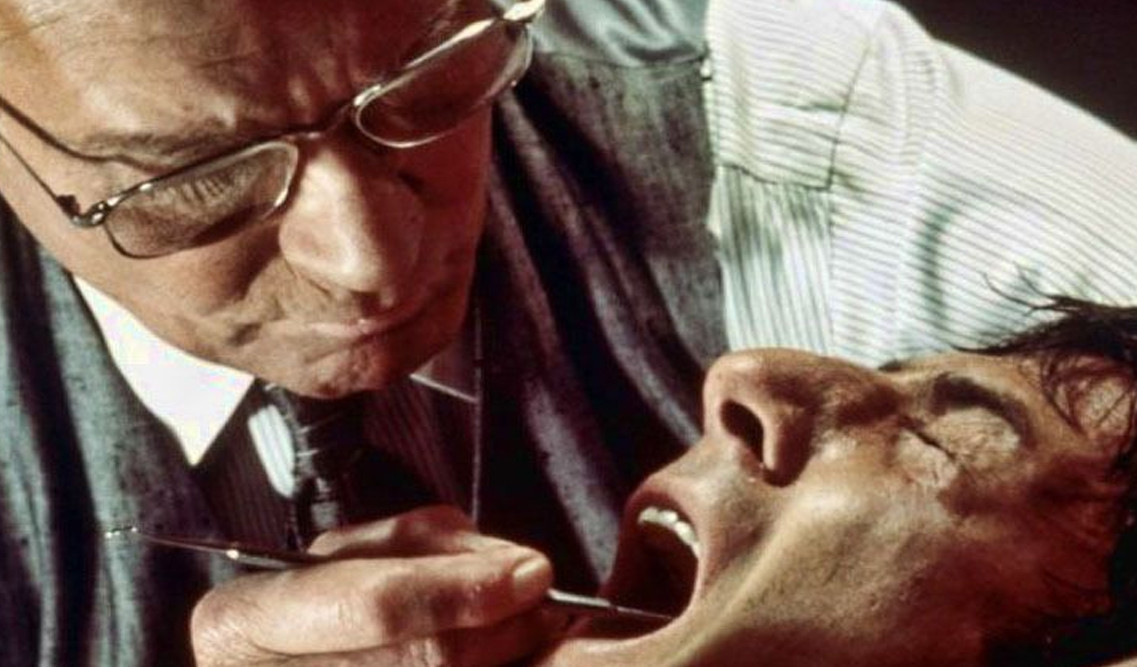Recently, I had major dental work done. Most people dread going to the dentist and I am among them. It didn’t help that when I went (twice in a short span). I kept replaying in my mind a scene from a movie starring Dustin Hoffman.
In the movie, Laurence Olivier played an ex-Nazi who is forced to come out of hiding to retrieve millions of dollars of diamonds that had been hidden. Dustin Hoffman’s brother in the movie who was trying to retrieve them before Olivier’s character does, dies in his brother’s arms, forcing him (Olivier) to come out of hiding and deal with Dustin Hoffman’s character. His goal is to ascertain if his dying brother communicated to him (Dustin Hoffman) if it’s safe to retrieve them without risking his life.
In the movie, Olivier was a dentist and has Hoffman’s character in the dentist chair trying to ascertain from him if it’s safe or not. But he’s doing dental work without numbing him or using anesthesia as he asks him repeatedly, “Is it safe?” Of all the scenes one could replay while sitting in the dentist chair, why I chose that one I’ll never know. I wanted to repeatedly ask my dentist before he got started, “Is it safe.”
That question (Is it safe?) is a relevant one many now ask as it pertains to returning to corporate church meetings. Many (wisely) quarantined to protect themselves from getting Covid-19 over the last year and a half. This was understandable and most churches accommodated themselves to the new reality by going to online services. I recently spoke with a pastor outside the US who recently was able to gather with his church for the first time during this entire period. In most churches, people who were out during the pandemic are beginning to trickle back. They feel it’s now safe.
But there is also reason for concern. Many who faithfully attended before the pandemic are not ready to return. It is not due to health concerns, but because they have become comfortable watching online. A man I know admitted to me (to his credit) that he had grown accustomed to watching the service online with a cup of coffee in his pajamas. It was much easier than getting up, dressing, and driving to church. Many believers who have laid out of meeting corporately during the last eighteen months feel the same way if they are willing to admit it.
Let me be the first to say that having online services during the pandemic was a blessing beyond description. It kept saints connected when physically gathering together was impossible. But let me say emphatically, it was never intended to take the place of real live fellowship with the people of God. Fellowship with others is one of the sacraments God has given us for our spiritual health. Such fellowship involves more than staring at a screen, but deep interaction with others as we worship, listen to God’s word, and open our hearts to others to both give and receive spiritual encouragement.
Apparently, the temptation to pull back from real contact with the saints is not a modern phenomenon but was an issue early believers faced as well. The writer to the Hebrews warns against believers forsaking meeting together as was the habit of some (Hebrews 10:25). Indeed, among many things’ believers are to consciously pursue is the regular practice of stirring up one another to “love and good works” (Hebrews 10:24). How do we do that if we remain isolated from one another? Surely the writer envisions more than an occasional comment in a chat room but is talking about deep emotional ties with others in local expressions of the body of Christ. In this way, there was a transference of encouragement going on. And far from accepting this as normal (passively listening to a service in isolation), the writer says such gatherings of God’s people should be on the increase rather than mere isolated cases (“not neglecting to meet together, as is the habit of some, but encouraging one another, and all the more as you see the Day drawing near” (10:25). We should be gathering more not less as we draw closer and closer to the appearing of our Lord.
While we certainly understand those with compromised immune systems continuing to lay low, all believers should be on guard against giving in to the temptation to forsake the assembling together with other believers. Neither is one on one fellowship over a meal what the writer has in mind; the Greek word episunagogue translated ‘meet together’ describes the formal assembling of God’s people. The word is derived from its root synagogue, the formal place where Jews gathered to worship and hear the Law and the Prophets read.
Is it safe to come back to the assembly? From all appearances, yes!





So glad you shared this, we are becoming complacent since the pandemic. Unacceptable, we need to come back like a roaring lion. Love you, Pastor Neil.